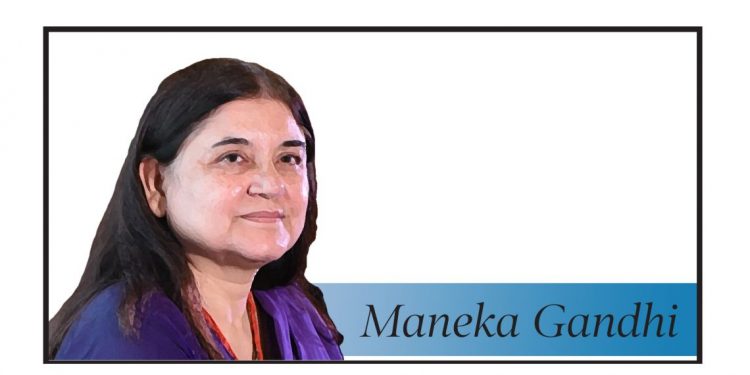That a vegan diet helps in reducing, and even removing diabetes and heart disease, is fairly well known. While generally higher in carbs, vegan diets are up to 2.4 times more effective at improving blood sugar management in people with diabetes. Vegan diets are also more effective at reducing total and LDL (bad) cholesterol, compared to omnivorous diets
But what effect does it have on other problems of the human body. In a study done by CM Clinton et al. in 2015, forty people with osteoarthritis followed either a whole-food, plant-based vegan diet, or their regular omnivorous diet for six weeks. The vegan group reported greater improvements in symptoms, energy levels, vitality, and physical functioning, compared to the regular diet group.
Since I have had rheumatoid arthritis for last 20 years I was particularly interested in this study done by R. Peltonen et al printed in the British Journal of Rheumatology, 1997. This study took 43 people with rheumatoid arthritis. Participants consumed either a raw, vegan diet rich in lactobacilli, or their habitual omnivorous diet for one month. Participants in the vegan group experienced significant improvements in disease symptoms, such as swollen and tender joints, much less pain, joint swelling, and morning stiffness, than those continuing with their existing diet. A return to their omnivorous diet, after the study was over, again aggravated their symptoms.
A raw vegan diet is actually the answer to almost everything. But it is the most difficult thing to do. When I binge on rice and curries over several weeks I give myself two days of just “green juice”- a mixture of whatever green vegetables/leaves we have in kitchen, a few neem and coriander leaves, ginger, tomato, haldi, celery, beetroot, and a fruit, four times a day. This brings me back to good health immediately and makes me lose weight! In fact, every study done, on the effects of a vegan diet on weight loss, shows it to be far more effective than any other diet. I tried a vegan diet during the lockdown and lost 11 kg in three months – without feeling hungry at all. In fact, now I eat only once a day and my feeling of fullness could be due to the higher intake of dietary fibre which can help people feel full. But it could also be because studies show that a vegan meal reduces the hunger hormone, ghrelin, less than a meat-containing meal, in healthy participants. What effect does a vegan diet have on the brain? Scientists Medawar, Huhn, Villringer and Witte, reviewed 32 studies done on the effects of plant-based diets on cognition, and printed the results in Translational Psychiatry.
This is what they write, “We found robust evidence for beneficial effects of plant-based diets versus conventional diets on weight status, energy metabolism and systemic inflammation in healthy participants, obese and type-2 diabetes patients. Considering neurological or psychiatric diseases and brain functions, the systematic review yielded in six clinical trials of diverse clinical groups, i.e. migraine, multiple sclerosis, fibromyalgia and rheumatoid arthritis. Here, mild to moderate improvement, e.g. measured by antibody levels, symptom improvement or pain frequency, was reported in five out of six studies, sometimes accompanied by weight loss.”
The most important thing they found was that the body’s inflammation was much less in plant based eaters. “The reason could be due to the abundance of anti inflammatory molecules in plants and/or their avoidance of pro inflammatory animal-derived molecules.”
A study by Song et al. estimated that statistically replacing 3 per cent of animal protein, especially from red meat or eggs, with plant protein would significantly improve mortality rates. In a study done by Winston Craig on the “Health effects of vegan diets”, printed in The American Journal of Clinical Nutrition, 2009, he writes: “A vegan diet appears to be useful for increasing the intake of protective nutrients and phytochemicals and for minimizing the intake of dietary factors implicated in several chronic diseases.” In a recent report by WHO/FAO, different plant food groups were rated with respect to their ability to influence chronic disease reduction. Cancer risk reduction, associated with a high intake of fruit and vegetables, was assessed as probable/ possible risk of heart disease reduction as convincing, and lower risk of osteoporosis was assessed as probable.
Data from the Adventist Health Study showed that non-vegetarians had a substantially increased risk of both colorectal and prostate cancer than did vegetarians. A vegetarian diet provides a variety of cancer-protective dietary factors. In addition, obesity is a significant factor, increasing the risk of cancer. Because the mean BMI of vegans is considerably lower than that of non-vegetarians, it may be an important protective factor for lowering cancer risk. Fruit and vegetables are described as protective against cancer of the lung, mouth, oesophagus, and stomach, and to a lesser degree some other sites, whereas the regular use of legumes provides a measure of protection against stomach and prostate cancer. In addition, fibre, vitamin C, carotenoids, flavonoids, and other phytochemicals in the diet, are shown to exhibit protection against various cancers, whereas allium vegetables provide protection against stomach cancer, and garlic against colorectal cancer. Foods rich in lycopene, such as tomatoes, are known to protect against prostate cancer.
Red meat and processed meat consumption are consistently associated with an increased risk of colorectal cancer. Those with the highest intake of red meat had elevated risks, ranging from 20 per cent to 60 per cent, of oesophageal, liver, colorectal, and lung cancers, than did those who ate the least. The use of eggs was recently shown to be associated with a higher risk of pancreatic cancer. Data suggest that legume intake is also associated with a moderate reduction in the risk of prostate cancer. Consumption of isoflavone-containing soy products during childhood, and adolescence, protects women against the risk of breast cancer later in life, whereas a high childhood dairy intake has been associated with an elevated risk of colorectal cancer in adulthood. Data from the Adventist Health Study showed that consumption of soy milk by vegetarians protected them against prostate cancer, whereas in other studies the use of dairy was associated with an increased risk of prostate cancer. Bone health depends on more than just protein and calcium intakes. Research has shown that bone health is also influenced by nutrients such as vitamin D, vitamin K, potassium, and magnesium, and by foods such as soy and fruit and vegetables. Vegan diets do well in providing a number of those important substances. Results from 2 large cohort studies support an association between vitamin K intake and the risk of hip fracture. In the Nurses’ Health Study, middle-aged women consuming the most vitamin K, green leafy vegetables, had a 45 per cent less risk of hip fracture. In the Framingham Heart Study, elderly men and women, who ate the largest amount of leafy vegetables, had a 65 per cent decreased risk of hip fracture than did those who ate the least.
Fruits and vegetables provide phytochemicals and vitamin C that boost immune function and prevent certain types of cancer. A meta-analysis on the effect of a plant based diet concludes a beneficial effect on heart disease, cancer, overweight, body composition, glucose tolerance, digestion and mental health. You have only one body. Why don’t you take care of it?
To join the animal welfare movement contact gandhim@nic.in, www.peopleforanimalsindia.org






































